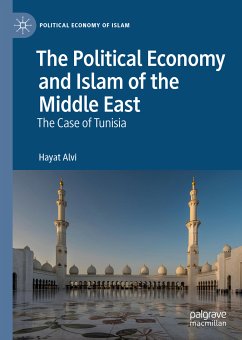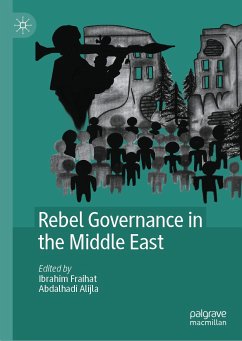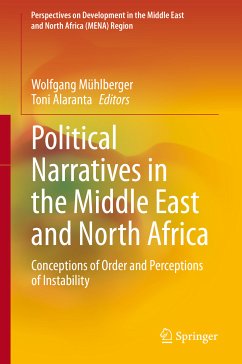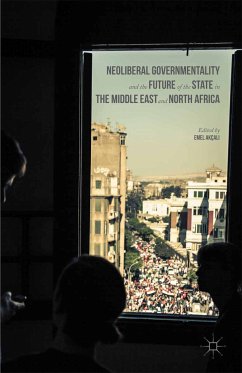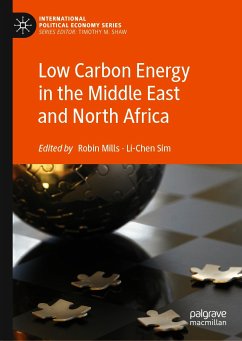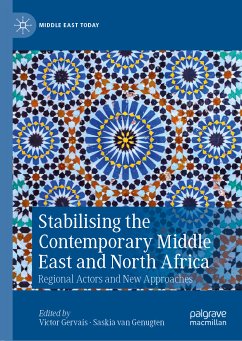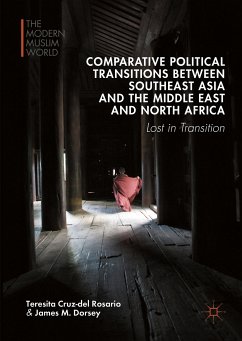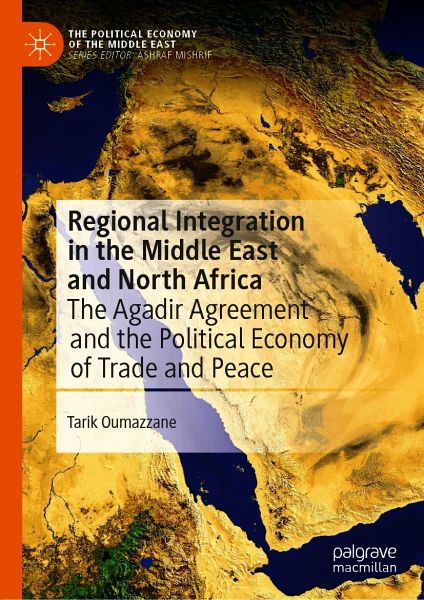
Regional Integration in the Middle East and North Africa (eBook, PDF)
The Agadir Agreement and the Political Economy of Trade and Peace
Versandkostenfrei!
Sofort per Download lieferbar
80,95 €
inkl. MwSt.
Weitere Ausgaben:

PAYBACK Punkte
40 °P sammeln!
This book analyses and assesses the Agadir Agreement's impact on economic integration, its effect on political cooperation, and its role in promoting peace between participating countries in the Middle East and North Africa (MENA). Since the 'Arab Spring' of 2011, the geo-political situation in MENA has further drifted towards instability and uncertainty. Expert analysis of the region seems to lurch from one crisis to another without moving beyond a focus on conflict. Few scholars have recognised that the MENA governments have long regarded regional economic integration as a chief policy objec...
This book analyses and assesses the Agadir Agreement's impact on economic integration, its effect on political cooperation, and its role in promoting peace between participating countries in the Middle East and North Africa (MENA). Since the 'Arab Spring' of 2011, the geo-political situation in MENA has further drifted towards instability and uncertainty. Expert analysis of the region seems to lurch from one crisis to another without moving beyond a focus on conflict. Few scholars have recognised that the MENA governments have long regarded regional economic integration as a chief policy objective to facilitate intra-regional trade and promote political cooperation and peace. Realising the shortcomings of the various integrative processes, Morocco, Tunisia, Egypt and Jordan signed the Agadir Agreement in 2004. To this date, it stands as one of the most significant economic agreements in the MENA region. Taking into account this variety of factors, this book offers a new assessmentof the pull between unity and disunity in the Middle East and North Africa region
Dieser Download kann aus rechtlichen Gründen nur mit Rechnungsadresse in A, B, BG, CY, CZ, D, DK, EW, E, FIN, F, GR, HR, H, IRL, I, LT, L, LR, M, NL, PL, P, R, S, SLO, SK ausgeliefert werden.




